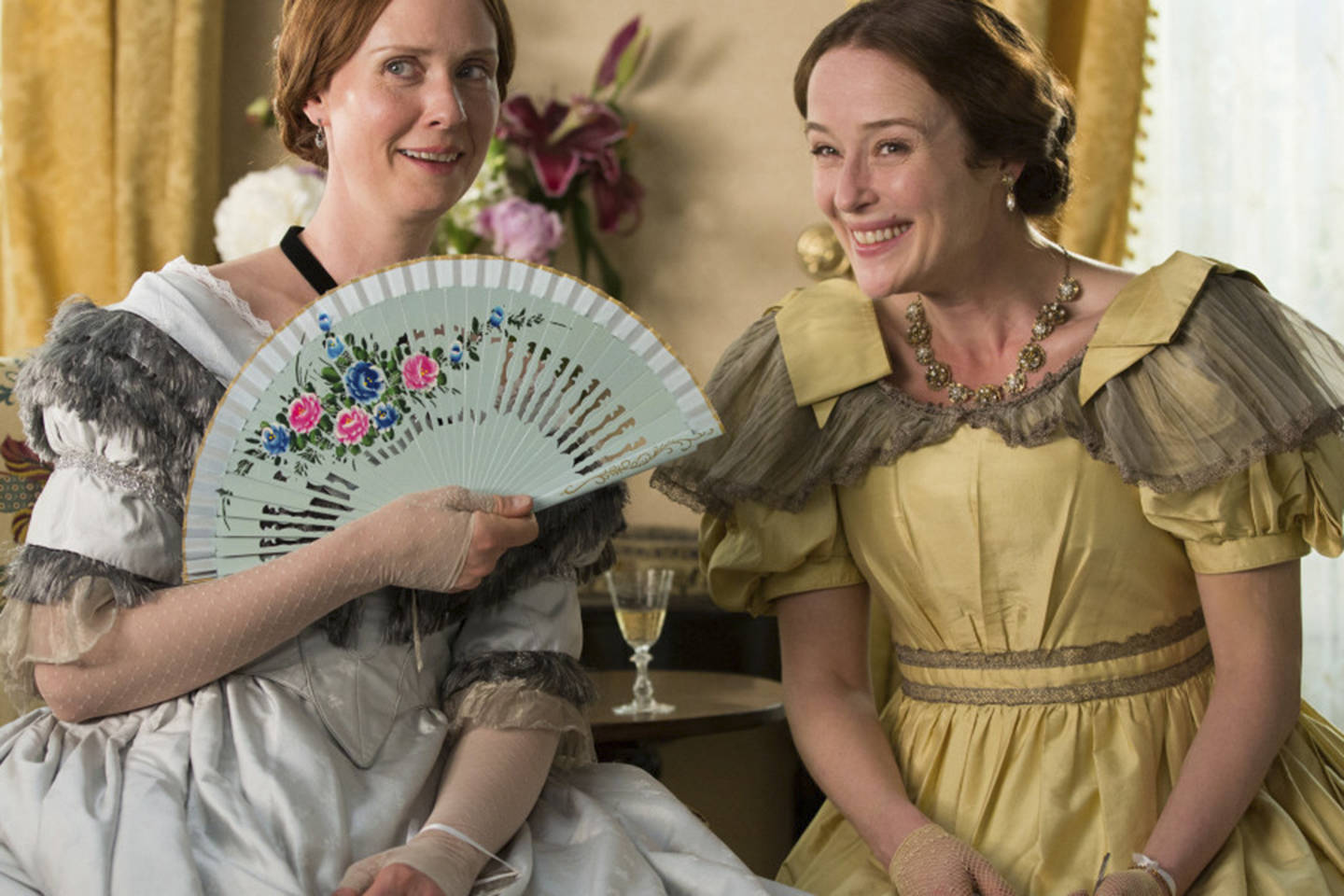A biopic of Emily Dickinson sounds like a terrible idea, and it probably would be if it unfolded along conventional lines. But what if it were as unconventional as Dickinson’s poetry? I don’t mean a movie that is la-di-dah “poetic,” with out-of-focus shots of blossoms falling as classical music plays. What if the cinematic approach to the poet’s life could approximate her eccentric punctuation—full of dashes where commas usually roam—her abrupt shifts in focus, and her piercing gaze at eternity? If you could do that you’d have A Quiet Passion, an appropriately odd film from the British director Terence Davies.
Davies first came to wide attention with his mournful Liverpool elegies Distant Voices, Still Lives (1988) and The Long Day Closes (1992). Those films already show him working in a peculiar style, less intent on storytelling than in conjuring moods and places—with a strong feeling for the courage of people who go about the business of getting through the day. Still, a film about Dickinson is a chancy endeavor. Her poetry is one thing, but Dickinson’s life was marked by illnesses and reclusiveness. And forget about the usual biopic rise to fame; locked in her Amherst obscurity, Dickinson had only a handful of poems published in her lifetime.
We first encounter the poet as a young woman (played by Emma Bell), steadfastly resisting religious indoctrination while briefly enrolled at college. Her household is fully pious, but her wealthy father (Keith Carradine) is too fond of his unusual daughter to force her to attend Sunday service. An elegant segue takes us a few years into the future, where we settle into rounds of domestic duties and lively visitors. There’s also a hint of literary ambition, and as the film goes on, we infer that Dickinson’s inability to have her work appreciated is connected to the pall that settles over her youthful gaiety.
For a movie that includes a lot of chatter about eternity, A Quiet Passion has a strange feeling for time. We’re given few indicators—except the passing of the Civil War—about how long any of this is taking. And most intriguingly, when we come upon Emily as an adult, she is played by Cynthia Nixon, who is clearly older than the character at that point. I think this is deliberate on Davies’ part, bending realism so that Dickinson exists in a timeless way. Nixon, though, skillfully alters her performance as the years go by: at first she’s alight with wit and curiosity, as though she’s going to burn through her 19th-century corsets; later, she’s wearied by duties and expectations. The film leaves no question that Dickinson’s setbacks, while certainly tied up in her distinctive personality, are also very much about being a woman in a man’s world.
Nixon is a renowned stage actress who is famous because of her role in Sex and the City, a bizarre career joke. (And if you were wondering how to get from Sarah Jessica Parker to Emily Dickinson with one degree of separation, you see how easy it is.) In this film Nixon is a giant, all the more so for playing a role with built-in constraints. As Emily’s sister Vinnie, Jennifer Ehle is superb, and Duncan Duff and Jodhi May are just right as Emily’s brother and sister-in-law. But here we get into one of the film’s weirdnesses. These performances, and the dialogue that comes out of them, are skewed so that they land somewhere between realism and theatricality. Sometimes characters pose as though waiting for the still camera to click; other times the lighting reminds us of a painting.
Even if that style produces uneven results, the overall effect is powerful. The movie’s title sounds worthy of a paperback from the gift shop at the airport, but in this case it’s earned. For as much as the English house and the proper costumes suggest a tasteful Masterpiece Theatre sort of experience, a wild and fiery spirit blazes beneath the exterior. To prove the rightness of that approach, simply read the poems. A Quiet Passion, Rated PG-13. Seven Gables Theater. Opens Fri., May 5. film@seattleweekly.com






